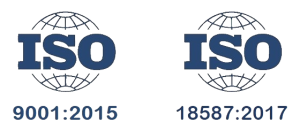
Localisation (in industry jargon also named ‘l10n’) refers to the process that converts text written for region A then suitable for region B. It means adapting it to a specific locale or market.
However, whilst the concept appears to be rather simple, if you’ve not encountered the issue before, let us tell you that it can be fairly complex.
In the 21st century, to take your business to the next level means entering the global marketplace. Business has become an international competition and is no longer country-specific. In order to reach a number of different markets, you must not only translate to different languages but also localise according to regional expectations. Localisation allows you to speak to people in their language in a way they use it in that country or region.
Localisation means being accurate to the country, rather than just the language.
There are a number of factors that go into achieving high-quality, successful translation, and globalisation and localisation are of vital importance in this regard.
What is Globalisation?: If you have a text which contains a lot of local terminology, phrasing or cultural references, you may need to “globalise” it before you have it translated. Essentially, globalisation means editing a piece of text with the intention of removing any country or culture-specific obstacles to translation, so that it will work to maximum effect in as many different countries around the world as possible.
What is localisation?: Localisation, meanwhile, is the actual adaption of text to a specific country and language. The translator’s task is to edit a piece so that it will fit a very specific language, i.e. UK English or US English, and that all spelling, jargon, punctuation, etc. are in line with the standards of that specific language.
How do the two compare?: Globalisation and localisation are both relevant to different degrees in almost every type of translation, and they relate to each other quite strongly. Globalising your documentation may be a vital first step to “neutralising” the text before taking steps to localise it for your specific target markets.
The localisation process may include: modifying content to suit the taste and consumption habits of other markets; adapting graphics to target markets; adapting design and layout to properly display translated text; converting to local requirements (such as currencies and units of measure); using proper local formats for dates, addresses, and phone numbers; addressing local regulations and legal requirements.
The aim of localisation is to give a product or service the look and feel of having been created specifically for that target market, no matter their language, culture, or location.
To illustrate, a market research questionnaire in standard German (‘Hochdeutsch’) may need to be adapted to make it suitable for an Austrian audience, with questions phrased appropriately in order to reflect the original research aims.
Likewise, if you have an advertising copy in Castilian Spanish, but want to transfer this for use in Mexico or Columbia, some key changes will need to be made.
Someone translating a contract into English will need to take into account that two main speakers of the language – the UK and the USA – continue to differ in their use of certain words, spelling, the use of tense, and grammar. English spoken in Liverpool isn’t identical to English spoken in Texas or in Sidney, and so on.
In fact, all of the languages which we serve are spoken differently in multiple countries.
Through our localisation service, we ensure that your brand is consistent globally, whilst still appealing to local audiences. The localisation of text is invaluable actually as it ensures that your communications reflect your key brand principles as well as cultural differences, and it also prevents anything from being lost in translation.
AVALON expert linguists are on-hand to make sure your text or documentation can be used effectively in any given target market. Our localisation services ensure that your translations are appropriate, accurate and value-adding, allowing you to develop market share.
You can be sure that for our languages we have an industry expert to take care of your documents so that they are professionally translated into the language of your choice and localised to the specific place and its culture.
Localisation solutions we typically provide for
• Products
• Services
• Websites
• Apps
• Software
• Multimedia
• Games
Kindly be aware that any of our service descriptions here are just a general outline.
Upon genuine further interest on your part, we will be happy to provide you with
more detailed information and work out a specific proposal tailored to your needs.
email: newyork@avalon-linguistic.com
![]() “Every word matters”
“Every word matters”



